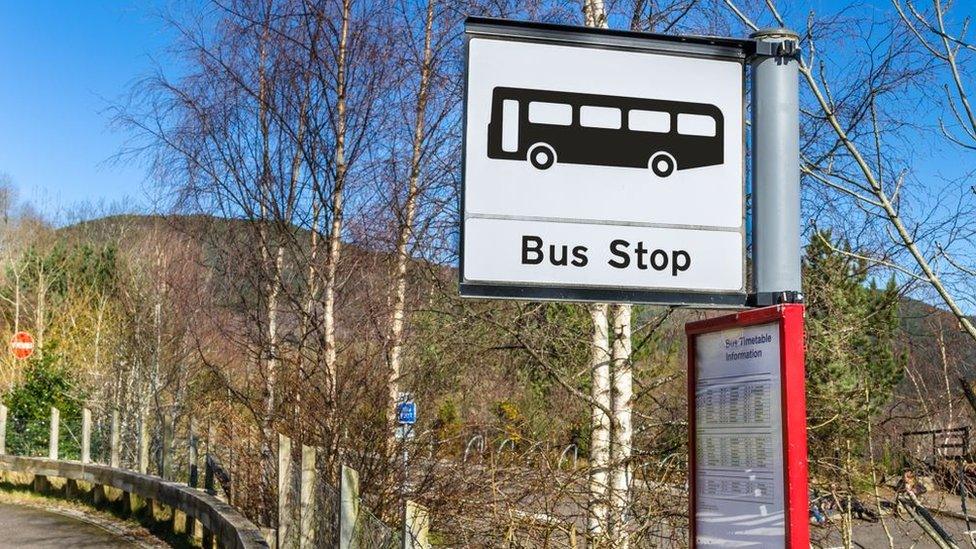Scrapped bus services in Cumbria could be reinstated
- Published

Westmorland and Furness Council are expected to decide which bus services could be reinstated next week
Previously withdrawn bus services in south Cumbria could be reinstated after more than £500,000 of funding was given to the local council by government.
Westmorland and Furness Council will decide on which routes might receive financial support next week.
The council said the £591,015 of time-limited funding from the Department for Transport will also be used to increase the frequency of some bus services.
It is hoped improved public transport will boost regional job opportunities.
The authority's highways and transport strategic board is due to agree on the potential routes earmarked for support on 2 October, should it be decided to use the government funding to augment local bus services.
The Local Democracy Reporting Service (LDRS) said the weekday 564 service, between Sedbergh and Kendal, and the Grange to Cartmel circular, which ran on three days a week until 2019, are among those services identified as routes that might be brought back.
The number 6 service, between Barrow and Windermere, is expected to receive additional monies to increase its frequency, providing additional services during peak working hours, as well as in the evenings and on Sundays.
Lack of transport
A document prepared ahead of the council meeting said hospitality businesses and visitor attractions in the area were "suffering" from the continued effects of the Covid pandemic and "ongoing labour shortages".
The report highlighted data compiled on behalf of Cumbria Tourism earlier this year, which found 86% of businesses stated they were struggling to recruit employees - with 59% reporting it as a serious concern.
"This is exacerbated by the long-term demographic challenges, lack of affordable housing and limited public transport facilities."
The report states: "For many people without access to a car, buses are the only way they can travel to health services, to shops and leisure, to places of work, to colleges and further education."
"Poor bus provision, particularly in rural areas can amplify social, economic and health inequality."

Follow BBC North East & Cumbria on X (formerly Twitter), external, Facebook, external and Instagram, external. Send your story ideas to northeastandcumbria@bbc.co.uk, external.